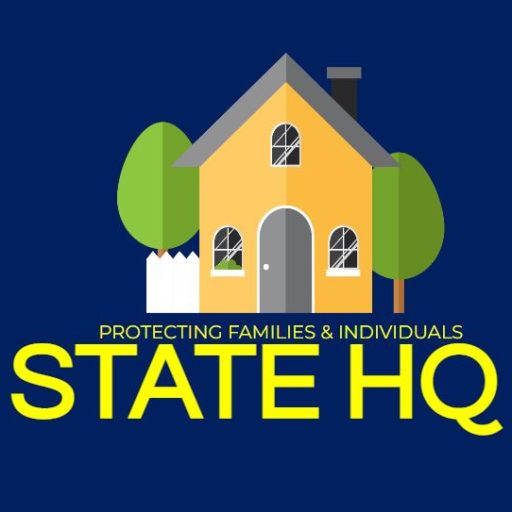IN HOME
SEE OTHER TOOLS HERE
TEXT BEFORE
As time permits, text your prospect a message before our meeting: “Hey! It’s [Agent] from the Insurance department. Thanks for taking my call Friday. I’ve got my work done for you and I’m looking forward to our time today at 2pm.”
WHAT IF A PROSPECT DOESN’T SHOW UP?
Rejoice! You now have 30mins to dial to find several more prospects.
Be sure to shoot the no-show a text inviting them to reschedule.
Opening Questions
Closing Questions
IN HOME PRESENTATION RECAP
EXPLAINER VIDEO: https://www.loom.com/share/81c131723a6946aeb7bc6dee64634845
NOTE: I sent this out after the in-home presentation to summarize their options.
POWER PHRASE
PRO TIP: Your best friend is the question, “Does that make sense?” as you go through the presentation.
TEXTS FOR AFTER “LET ME THINK ABOUT IT”
“Andy, I had a minute or two before my next meeting and just wanted to check on you. I know that taking care of Mary is on your mind. I think it’s be appropriate to talk. My schedule might hold up the process, but I do have an opening this week. Would you be opposed to scheduling a conversation?”
“Joe, I had a few minutes today to go through my case load and I see that we still haven’t found a resolution for this $250,000 for your family (maybe you already put something in place for them?). How would you like to go about this moving forward?”
WHEN YOU GET GHOSTED
WHY DO WE ASK FOR BANK INFORMATION?
The conditional receipt began in 1962 (Simpson v. Prudential: insurance is in effect conditionally upon application and agreement to pay first premium) and was solidified forever in 1971 while Wanda and Ted Cites were applying for coverage. During the underwriting, sadly, Ted passed away. After the funeral, Wanda asked for their $100,000 insurance payment and they were denied because the underwriting wasn’t completed. She lawyered up. The litigation decreed that the Carrier (Farmers Insurance) was liable for the benefit payment because of the conditional receipt. It was a win for people like us!
Because of this litigation, you’ll be covered (technically) after we submit the application (premiums will not be withdrawn without your authorization).
One concession has been made with conditional receipts: applicants do need to provide bank information when applying to cover a small part of the cost of applying (underwriting, risk assessment, medical record retrieval, DMV records, prescription history, etc – typically over $300 in cost) and so that premiums can be drafted after approval.
- NOTE: You can use a Quarterly billing cycle and NOT take their bank info; you’ll need to have them fill a form out later to get that info, however.
If the customer is nervous about sharing banking information, remind them there are several protections in place:
- The insurance agency is the most regulated industry in the US.
- Beyond bank-level online digital security
- State and National Regulation of the Carriers and Writers
- “A+” Carrier Rating from Moody’s and A&M Best (and fight to protect that)
- The Carrier will spend about $300 with Paramed, requesting medical records, RX history, and DMV records (they want to be sure the applicant is serious about applying)
- My license is searchable on the State Insurance website – and on the National registry www.NIPR.com
- My family depends on my income, and I will not compromise my credentials on this small [$xxx,xxx] policy.
NOTE: You can use a Quarterly billing cycle and NOT take their bank info; you’ll need to have them fill a form out later to get that info, however.
ANOTHER NOTE: Consider giving them their bank routing number to confirm or even ‘pre-qualify’ them.
PRO TIP: CRITICAL PERIOD
For prospects under age 60, a term policy is the way to go, but for prospects over age 60, it’s time to start thinking of “Critical Period” (a whole life policy that will buy the surviving spouse or children some time in the critical period following your client’s death).
We get busy…or we get lazy…or we get distracted…life happens….and then, we’re going to do it ‘next month.’ It’s this perpetual kicking the can down the sidewalk. It’s the holiday season or tax time and it becomes “I’m gonna wait until the kids get out of school”….
But then BANG – there’s a car wreck …a cancer diagnoses…an accident of some form…And now the trustee for your estate is the State, and they’re handling the funds instead of {name of trustee}. That process can take months or years to get the money into the hands of those you most want to care for.
The lender is not going to wait for the state probate process. Once 2-3 payments are missed, they will start the process of Foreclosure on your home.
And I’d like to help.
I’m going to ask your permission to help you get the important things done. I don’t want to help you kick the proverbial can down the sidewalk today. I’m gonna help you get the important stuff done. Does that make sense?
[Husband name] What specific challenges would [spouse] and [kid’s names] have right now if something were to happen to you?
What is your specific plan to make sure spouse name and name each child are going to be okay?
You see, about 6-8 weeks after you pass on, your wife will get a call from a Real Estate Agent. They will want to buy the home. She will want to sell because her life has been turned upside down and she’ll realize that the house is too large – and a check for $400,000 would help her financially.
Does that make sense?
Well, here’s the trouble. It’s a low-ball number. The home could easily sell for $450,000, but in desperation (and in the middle of grieving), she decides to sell. And lose out on $50,000.
If she had some time to grieve with dignity. If she had time to do a good market analysis on the home and get 3 appraisals done, she would have made an extra $50,000.
The Critical Period program does one thing: it buys your wife time. Time so she can make the best decisions and time to grieve…
NOTE: A few Final Expense (whole life products) allow cash access along the way.
TIPS
CLOSING THE DEAL
- People like to be led. Come with your top recommendations in mind and lead them.
- Keep it simple.
- “Timid closers have skinny children.” Be bold (but not overbearing).
- Match and mirror the cadence and tone of your prospect.
- Eye contact is key.
- Build trust by asking quality open-ended questions.
- Build trust throughout your presentation.
- Don’t be a salesman. Be a servant.
- Over communicate the fact that you want the best for THEM.
TRAINING VIDEOS
- https://fast.wistia.net/embed/channel/s77togsvss?wchannelid=s77togsvss&wmediaid=o5r4hlaefw
- https://m.soundcloud.com/sfglife/rex-knight-jr-how-to-avoid-the-dreaded-think-about-it-in-the-home?ref=clipboard&p=i&c=0
- https://www.spreaker.com/user/agenttraining/getting-an-80-close-ratio-in-the-home?fbclid=IwAR0b4llprZX2FDPp-n3jc-lrwDWmafe4sgOMo881vNMO20LMwq-d-6wRwy8
- https://www.youtube.com/watch?v=rpDCVJtJOCk
- https://vimeo.com/556706326
- https://youtu.be/ibF8_j1cJ9s
WRITE GOOD BUSINESS
If a client cancels their policy within 12 months (rare) you will need to refund your payment to the carrier. This is called a ‘chargeback.’ It’s critical that you assess their financial status and write policies that are affordable and do what the client intends to do.

PRO TIP
If a prospect wants a summary of our meeting, I will send a message like this:
Hey there! Thanks for the conversation. It was fun to get to know you a little bit more.
Here’s a short recap (that was a lot of info to digest). This product is great for families who want to stay in their home (and have it fully or partially paid off – and not be tied to a mortgage) if a major illness or a catastrophic accident or a dread disease occurs.
One person compared it to “AFLAC” to protect a home mortgage and equity.
The unemployment or disability payments that you’d get from work would be used to pay for groceries and doctors visits and things like that, and the money provided through this product would be used to have the home paid off.
With the A-rated carrier Foresters, the premium is $23/mo (or possibly closer to $19 after they view your medical history).
Please feel no pressure from me. My job is just to present options and then help fill out some forms and advocate for you with the Carrier.
Thank you! Please let me know if there are more questions? I’m happy to help in any way.
-Eric

